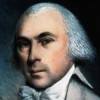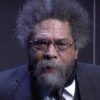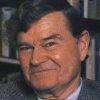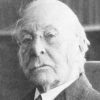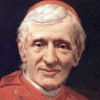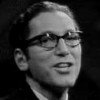Philosophy is odious and obscure;
Both law and physic are for petty wits;
Divinity is basest of the three,
Unpleasant, harsh, contemptible, and vile:
‘Tis magic, magic, that hath ravish’d me.Christopher "Kit" Marlowe (1564-1593) English dramatist and poet
The Tragicall History of the Life and Death of Doctor Faustus, Act 1, sc. 1 (sc. 1), l. 138ff (1594; 1604 “A” text)
(Source)
Declaring to the magicians Valdes and Cornelius his decision to pursue magical studies.
Goethe's Faust (1808-1829) includes a similar litany of studies the title character feels are useless.
In the generally longer 1616 "B" text (l. 131ff), the lines about Divinity studies are omitted:Philosophy is odious and obscure:
Both Law and Physicke are for petty wits,
Tis Magicke, Magicke that hath ravisht me.
Quotations about:
university
Note not all quotations have been tagged, so Search may find additional quotes on this topic.
It is the function of the university to preserve what is best in the heritage of the past, and pass this on to the future; what other institution can do this so magisterially? Its function is to inflame the minds of the young with passion to serve society, and to train them for that service; what other institution does this? Its function is to inspire all its acolytes with a sense of the beauty and the dignity of the search for truth, and to make sure that this great task will never be neglected. Its function is to stand aside from its own society and its own time, to exalt those values that are universal and timeless. Its function is to push outward the bounds of knowledge — knowledge of the physical universe, and of the nature and history of man, and thus enable man to confront and perhaps even to triumph over those problems which crowd about him so pitilessly. No other institution can do this.
Henry Steele Commager (1902-1998) American historian, writer, activist
Speech (1971-04-10), “The University and the Community of Learning,” Kent State University, Ohio
(Source)
Learned Institutions ought to be favorite objects with every free people. They throw that light over the public mind which is the best security against crafty & dangerous encroachments on the public liberty.
James Madison (1751-1836) American statesman, political theorist, US President (1809-17)
Letter (1822-08-04) to William T. Barry
(Source)
These words are one of the Madison quotes inscribed in the Madison Memorial Hall, Library of Congress, James Madison Memorial Building.
This college, therefore, from its earliest beginnings, has recognized and its graduates have recognized, that the purpose of education is not merely to advance the economic self-interest of its graduates. The people of California, as much if not more than the people of any other State, have supported their colleges and universities and their schools because they recognize how important it is to the maintenance of a free society that its citizens be well educated.
John F. Kennedy (1917-1963) American politician, author, journalist, US President (1961–63)
Speech (1962-03-23), University of California, Berkeley
(Source)
Even within the university world, where the highest calling should be to spark the fires of intellectual exploration and to prepare young minds for engaged and productive participation in our democracy, the mandates of the market have attained prominence. The narrow quest for success crowds out the noble effort to be great — greatness understood as using one’s success to make the world a better place for all.
Cornel West (b. 1953) American philosopher, political activist, social critic
Democracy Matters, ch. 6 (2004)
(Source)
Education is the sum of what students teach each other in between lectures and seminars. You sit in each other’s rooms and drink coffee — I suppose it would be vodka and Red Bull now — you share enthusiasms, you talk a lot of wank about politics, religion, art and the cosmos and then you go to bed, alone or together according to taste. I mean, how else do you learn anything, how else do you take your mind for a walk?
Stephen Fry (b. 1957) British actor, writer, comedian
The Fry Chronicles: An Autobiography, Part 1 “College to Colleague” (2010)
(Source)
Well, that’s Philosophy I’ve read,
And Law and Medicine, and I fear
Theology, too, from A to Zed;
Hard studies all, that have cost me dear.
And so I sit, poor silly man
No wiser now than when I began.[Habe nun, ach! Philosophie,
Juristerei und Medizin,
Und leider auch Theologie
Durchaus studiert, mit heißem Bemühn.
Da steh ich nun, ich armer Tor!
Und bin so klug als wie zuvor.]Johann Wolfgang von Goethe (1749-1832) German poet, statesman, scientist
Faust: a Tragedy [eine Tragödie], Part 1, sc. 4 “Night,” ll. 354ff (1808-1829) [tr. Luke (1987)]
(Source)
Some translations (and this site) include the Declaration, Prelude on the Stage, and Prologue in Heaven as individual scenes; others do not, leading to their Part 1 scenes being numbered three lower.
See Marlowe (1594).
(Source (German)). Alternate translations:I've studied now Philosophy
And Jurisprudence, Medicine,
And even, alas! Theology
All through and through with ardour keen!
Here now I stand, poor fool, and see
I'm just as wise as formerly.
[tr. Priest (1808)]Now I have toil'd thro' all; philosophy,
Law, physic, and theology: alas!
All, all I have explor'd; and here I am
A weak blind fool at last: in wisdom risen
No higher than before.
[tr. Coleridge (1821)]I have now, alas, by zealous exertion, thoroughly mastered philosophy, the jurist's craft, and medicine -- and to my sorrow, theology too. Here I stand, poor fool that I am, just as wise as before.
[tr. Hayward (1831)]I have, alas! Philosophy,
Medicine, Jurisprudence too,
And to my cost Theology,
With ardent labour, studied through.
And here I stand, with all my lore,
Poor fool, no wiser than before.
[tr. Swanwick (1850)]Have now, alas! quite studied through
Philosophy and Medicine,
And Law, and ah! Theology, too,
With hot desire the truth to win!
And here, at last, I stand, poor fool!
As wise as when I entered school
[tr. Brooks (1868)]I've studied now Philosophy
And Jurisprudence, Medicine, --
And even, alas! Theology, --
From end to end, with labor keen;
And here, poor fool! with all my lore
I stand, no wiser than before:
[tr. Taylor (1870)]There now, I’ve toiled my way quite through
Law, Medicine, and Philosophy,
And, to my sorrow, also thee,
Theology, with much ado;
And here I stand, poor human fool,
As wise as when I went to school.
[tr. Blackie (1880)]I have studied, alas! Philosophy,
And Jurisprudence, and Medicine, too,
And saddest of all, Theology,
With arden labor, through and through!
And here I stick, as wise, poor fool,
As when my steps first turned to school.
[tr. Latham (1908)]I have, alas, studied philosophy,
Jurisprudence and medicine, too,
And, worst of all, theology
With keen endeavor, through and through --
And here I am, for all my lore,
The wretched fool I was before.
[tr. Kaufmann (1961)]Alas, I have studied philosophy,
the law as well as medicine,
and to my sorrow, theology;
studied them well with ardent zeal,
yet here I am, a wretched fool
no wiser than I was before.
[tr. Salm (1962)]I have pursued, alas, philosophy,
Jurisprudence, and medicine, And, help me God, theology,
With fervent zeal through thick and thin.
And here, poor fool, I stand once more,
No wiser than I was before.
[tr. Arndt (1976)]I've studied, alas, philosophy,
Law and medicine, recto and verso,
And how I regret it, theology also,
Oh God, how hard I've slaved away,
With what result? Poor foolish old man,
I'm not whit wiser than when I began!
[tr. Greenberg (1992)]Medicine, and Law, and Philosophy --
You've worked your way through every school,
Even, God help you, Theology,
And sweated at it like a fool.
Why labour at it any more?
You're no wiser now than you were before.
[tr. Williams (1999)]Ah! Now I’ve done Philosophy,
I’ve finished Law and Medicine,
And sadly even Theology:
Taken fierce pains, from end to end.
Now here I am, a fool for sure!
No wiser than I was before.
[tr. Kline (2003)]
Americans are the only people in the world known to me whose status anxiety prompts them to advertise their college and university affiliations in the rear window of their automobiles.
Paul Fussell (1924-2012) American cultural and literary historian, author, academic
Class: A Guide Through the American Status System, ch. 4 (1983)
(Source)
Anyone who doesn’t realize that, whether for their attenders or their conductors, colleges and universities are the current equivalent of salons and levees and courts should look harder. If no other institution here confers the titles of nobility forbidden by the Constitution, they do. Or something very much like it.
Enter to grow in wisdom. / Depart to serve better thy country and thy kind.
Charles William Eliot (1834-1926) American academic
Lines inscribed on the 1890 (Dexter) Gate to Harvard Yard, Cambridge, Massachusetts
(Source)
On the front ("Enter") and back ("Depart") of the gate, which was erected in 1901 as a gift of the Harvard Class of 1890. Eliot also considered "Enter daily to grow in wisdom" and "Depart to serve better they country and mankind."
Paraphrases:
- "Enter to learn; go forth to serve."
- "Enter to learn; go forth to earn."
A man may hear a thousand lectures, and read a thousand volumes, and be at the end of the process very much where he was, as regards knowledge. Something more than merely admitting it in a negative way into the mind is necessary, if it is to remain there. It must not be passively received, but actually and actively entered into, embraced, mastered. The mind must go half-way to meet what comes to it from without.
John Henry Newman (1801-1890) English prelate, Catholic Cardinal, theologian
The Idea of a University, Lecture 9 “Discipline of Mind,” sec. 4 (1852)
(Source)
This ideal University of Life … would never take the importance of culture for granted. It would know that culture is kept alive by a constant respectful questioning — not by an excessive and snobbish attitude of respect. Therefore, rather than leaving it hanging why one was reading Anna Karenina or Madame Bovary, an ideal course covering nineteenth-century literature would ask plainly “What is it that adultery ruins in a marriage?” Students in the ideal University of Life would end up knowing much the same material as their colleagues in other institutions, they would simply have learned it under a very different set of headings.
Alain de Botton (b. 1969) Swiss-British author
“Reclaiming the Intellectual Life for Posterity,” Liberal Education (Spring 2009)
(Source)
I don’t think the boy of lively mind is hurt much by going to college. If he encounters mainly jackasses, then he learns the useful lesson that this is a jackass world.
H. L. Mencken (1880-1956) American writer and journalist [Henry Lewis Mencken]
“Editorial,” The American Mercury (April 1926)
(Source)
Reprinted in Prejudices: Sixth Series (1927).
As I left the building, classes were changing and the students were milling about in the halls. They seemed inconceivably young to me. Full of pretense, massively other oriented, ill formed, partial, angry, earnest, resentful, excited, frantic, depressed, hopeful, and scared.
Every great study is not only an end in itself, but also a means of creating and sustaining a lofty habit of the mind.
Bertrand Russell (1872-1970) English mathematician and philosopher
“The Study of Mathematics,” Mysticism and Logic (1918)
(Source)
When one sees the number and variety of institutions which exist for the purposes of education, and the vast throng of scholars and masters, one might fancy the human race to be very much concerned about truth and wisdom. But here, too, appearances are deceptive. The masters teach in order to gain money, and strive, not after wisdom, but the outward show and reputation of it; and the scholars learn, not for the sake of knowledge and insight, but to be able to chatter and give themselves airs.
[Wenn man die Vielen und Mannigfaltigen Anstalten zum Lehren und Lernen un das so große Gedränge von Schülern und Meistern sieht, könnte man glauben, daß es dem Menschengeschlechte gar sehr um Einsicht und Wahrheit zu thun sei. Aber auch hier trügt der Schein. Jene lehren, um Geld zu verdienen und streben nicht nach Weisheit, sondern nach dem Schein und Kredit derselben: und Diese lernen nicht, um Kenntniß und Einsicht zu erlangen; sondern um schwätzen zu können nd sich ein Ansehn zu geben Alle dreißig Jahre nämlich tritt so ein sondern um schwätzen zu können und sich ein Ansehn zu geben.]
Arthur Schopenhauer (1788-1860) German philosopher
Parerga and Paralipomena, Vol. 2, ch. 21 “On Learning and the Learned [Über Gelehrsamkeit und Gelehrte],” § 244 (1851) [tr. Saunders (1890)]
(Source)
(Source (German)). Alternate translation:When we see the different institutions for teaching and learning and the vast throng of pupil and masters, we might imagine that the human race was very much bent on insight and truth; but here appearances are deceptive. The masters teach in order to earn money and aspire not to wisdom, but to the semblance and reputation thereof; the pupils learn not to acquire knowledge and insight, but to be able to talk and chat and to give themselves airs.
[tr. Payne (1974)]
The politics of the university are so intense because the stakes are so low.
Wallace Sayre (1905-1972) U.S. political scientist, academic
Sayre’s Third Law
One of several formulations of the same sentiment, which has also been attributed to Richard Neustadt, Jesse Unruh, Henry Kissinger ("University politics are vicious precisely because the stakes are so small"), Charles Philip Issawi ("In any dispute the intensity of feeling is inversely proportional to the value of the issues at stake. That is why academic politics are so bitter"), Lawrence Peter, C.P. Snow, and others, with antecedents by Samuel Johnson and Woodrow Wilson. Most of the attributions come in the early-mid 1970s, though Herbert Kaufman, a colleague, claimed Sayres had used the phrase for decades.
See also Quote Investigator, Quote Verifier, and Wikipedia for more discussion.



